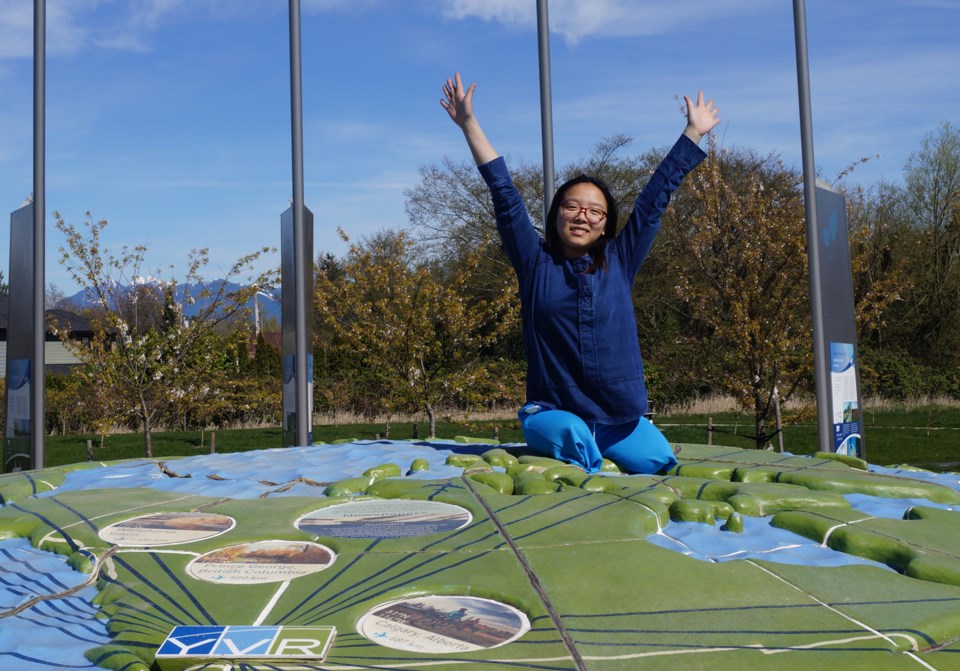Since losing her legs at age 11, in one of the world’s deadliest earthquakes, Meihua Huang has become a popular and ambitious advocate for youth, and youth amputees, in her native China.
And given her first opportunity to travel abroad, to pursue her dream of flying, she made Richmond a pit-stop on a whirlwind tour that also features public speaking engagements.
On Wednesday, Huang visited Vancouver International Airport, the Richmond Olympic Oval and the Richmond Centre for Disability.
Speaking to the Richmond News at Larry Berg Park, on Sea Island, Huang said she was impressed with Metro Vancouver’s infrastructure for disabled people — despite barely squeezing her wheelchair through concrete barriers between the park and the parking lot.
“It’s why I applied to schools abroad; because I want to be independent. In China, some parts have barrier-free infrastructure but not all places . . . In China, people with disabilities must depend on someone else,” said the 19-year-old, who was recently accepted by the University of B.C., but is waiting to hear back from her scholarship applications.
Huang was sponsored by Imperial Canadian Flying School in Pitt Meadows to come to Vancouver and take part in its introductory flying program. There, she completed aviation theory courses, flight simulator training and several guided flights.
Huang said she’s wanted to learn to fly since being airlifted by helicopter out of her hometown in the Chinese province of Sichuan a week after the May 12, 2008, disaster, which killed about 85,000 people.
Huang was at school when the earthquake occurred. “The ground began to shake up and down, left and right, in all directions.”
After some initial tremors, children went into the staircase on the second floor but many, including Huang, were crushed by falling debris. “At first I could not see anything, it was all black.”
She spent about a week in her home town, a remote mountain village, with little medical attention. Finally, military helicopters came with soldiers to evacuate the injured. It was Huangs’ first time out of her hometown.
Since then, she’s always wanted to fly.
Coun. Chak Au, as a member of the Canadian International Education Assistance Foundation, helped facilitate Huang’s Richmond tour. Au said he is hoping the foundation can get Huang prosthetics.
Born from an ethnic minority peasant family and raised primarily by her two grandmothers, Huang was helped by charities and placed in an international school, where she excelled, learning Mandarin and then English.
Her start at public speaking (she presented at Mini We Day Beijing 2014) started in the hospital, when doctors noticed her positive attitude, despite the tragic circumstances. They asked her to keep other injured kids company.
“Suddenly I realized I could do something that could be meaningful. At that time I wanted to help others and inspire others,” said Huang.
But despite her motivational abilities, Huang said she’d prefer to just do things, and that’s what she tells her audiences.
“I don’t really like to say things, I just want to do things,” said Huang, who hopes to study medicine after upgrading her science courses at university. “I say never give up hope because you never know what will happen, because we live on this Earth for a certain period, and what you (need to) do is keep learning and bettering yourself and just enjoy your life.”



